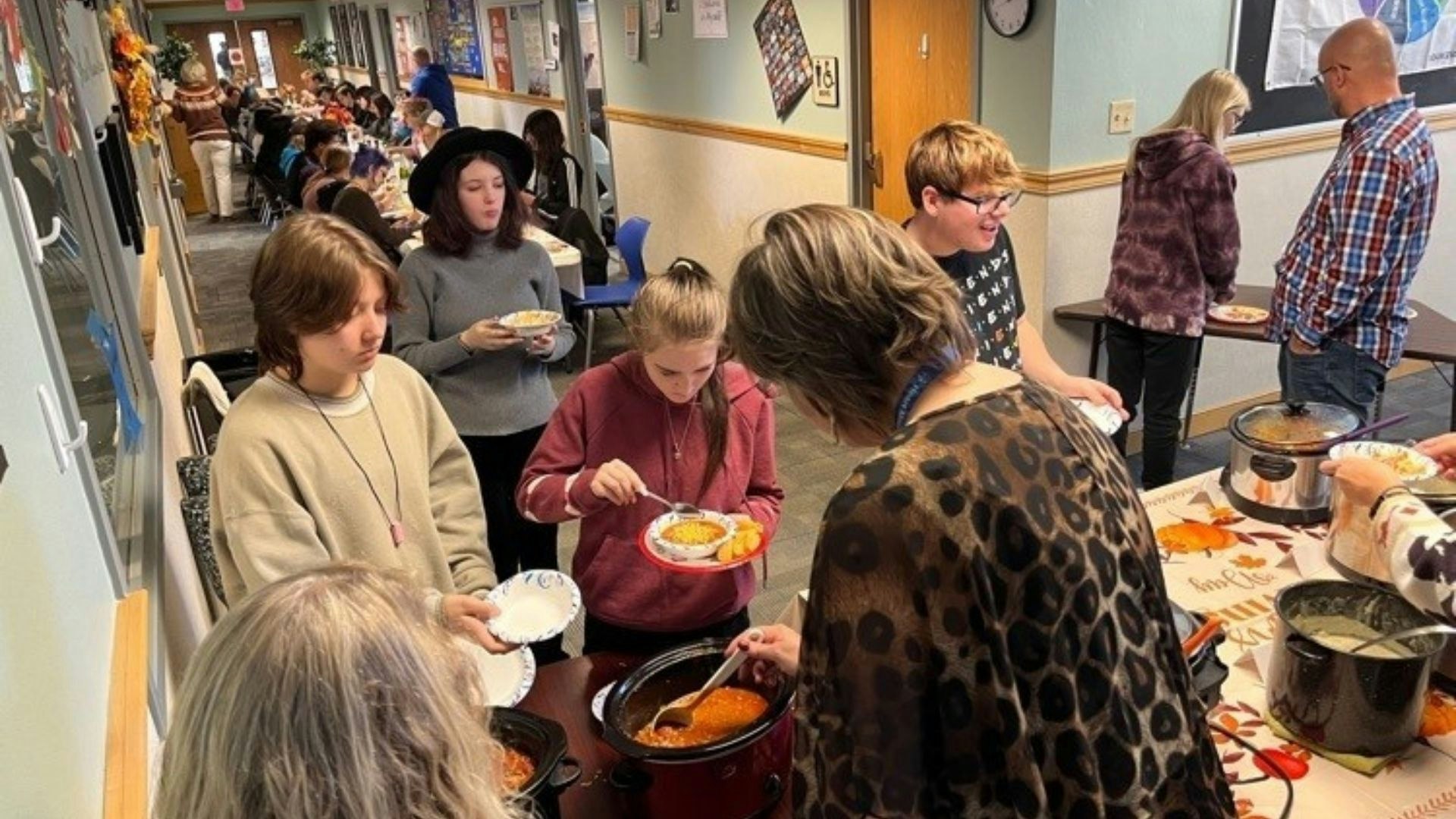As an elementary school teacher, Chris Galagan has seen firsthand the effect of hunger on her students.
While some children come to school Monday mornings well-rested and focused, others arrive irritable, tired and distracted. The behavior of Galagan’s students, she said, in many ways reflects their conditions at home.
“Some kids just come in dragging in the mornings on Mondays,” she told Cowboy State Daily. “They are so hungry they can hardly wait for lunch.”
Galagan’s experience is not isolated.
Throughout the state of Wyoming, children going home to empty cupboards and often absentee parents is a sad reality.

Hiding In Plain Sight
While most students come to school well-dressed and well-fed, appearances can be deceiving – hunger is a real problem for many Wyoming students.
Sharon Miller, director of Friends Feeding Friends in Johnson County, said that a 2018 survey at a Buffalo elementary school asking students whether they experienced hunger at home produced startling results.
“Thirty percent of children reported some hunger over the weekends,” Miller said. “So that’s how this program got started.”
Friends Feeding Friends provides weekend food packages to elementary school children and food pantries for older youths who otherwise might not have access to meals at home.
“I think it’s a major source of nutrition for a lot of those kids,” said Miller.
Heartbreaking Situations
Pastor Sarah Lucas, whose Foundations for Nations organization on the Wind River Reservation offers children summer programs as well as meals, said she’s had heartbreaking interactions with children who have no access to food at home.
“We did have a little girl this summer who just broke into tears about how she hadn’t eaten all weekend and that she was starving,” Lucas told Cowboy State Daily. “She said the last time she ate was our last day of kids programming, which was three or four days before.”
Lucas said she made a visit to the child’s family to let them know that the organization had a food bank and that the family could always have access to meals.


Food 4 Kids
Galagan said the Food 4 Kids program began in Cody six years ago when members of the Episcopal and Presbyterian churches collaborated to send kids home on weekends with backpacks full of donated food.
She said students who are part of the program excitedly look forward to their Friday backpacks.
“They get so excited,” she said. “Some of the kids just are giddy over their bags.”
But Galagan said they’ve learned to send home foods that kids can prepare themselves.
“You know, (some) parents work,” Galagan said. “And they might check in on their kids, but sometimes kids are left by themselves on the weekends.”
And although many families qualify for assistance at the Cody Cupboard food bank, as well as for free or reduced lunches at school, many still come up short for their children’s meals.
“It’s just hard for parents to pay that much every week for food for their lunches,” said Galagan.
Expanded Offerings
While the Food 4 Kids program started in the elementary schools, it’s expanded to the middle and high schools.
“I heard a couple of years ago there was a kid who would hide his bag when he got home because his older brother would eat everything out of it,” Galagan said.
Now the high school and Cody’s alternative school keeps a pantry where older kids can take food home for evening and weekend meals. Galagan explained that many of the students at the alternative high school, Heart Mountain Academy, are actually homeless, sleeping on couches at friends’ houses.
“Those kids really thrive on those bags, and they’re extremely appreciative,” said Galagan.
Family Concerns
Lucas pointed out that some families don’t ask for assistance out of fear. She said she’s spoken to some parents who keep their economic situations quiet, afraid that they might be charged with neglect.
“We just reassured (them), we’re not here to judge you guys in any kind of way,” she said. “I think they’re great parents, they just don’t have the means to provide.”
And while some families might balk at being offered assistance, Galagan said they try to be as discreet as possible to avoid any sort of societal judgment.
“We err on the side of compassion,” she said.
Making A Difference
Miller said that the difference the program has made is measurable.
“In November of last year, we conducted that hunger survey with the children, and it had gone down from 30% to 12%,” said Miller. “We felt it was just miraculous. We feel like we’re making a difference.”
Galagan agreed, noting that since Food 4 Kids started filling backpacks, there’s been a visible difference in students’ behavior – and in their grades.
“When kids are hungry, that’s all they can focus on is being hungry,” she said. “And if they have a snack, or if they can have something over the weekends to feed them, then they can focus on other stuff. And so the focus on schoolwork is better because they’re not worried about their tummies rumbling on Monday morning.”
Lucas said cooperation with schools has been a critical component in addressing the crisis of hungry kids.
“We’ve had the schools call us saying that, ‘Hey, we have grandpa that’s raising his kids and they don’t have any food and the kids are coming to school hungry,’” said Lucas. “So there is real hunger out here in this area, and when we find out we have hungry kids, we do make sure we get them set up with some food.”





